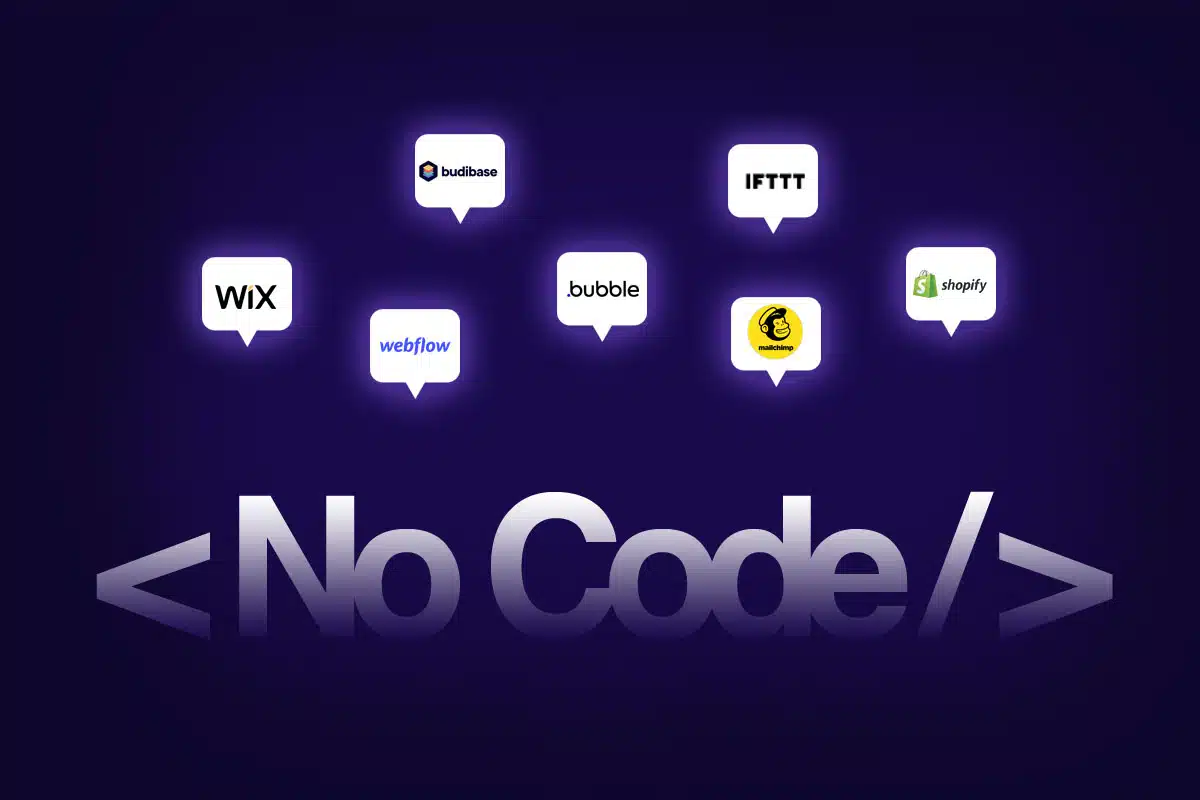Introduction
As technology continues to advance, businesses and entrepreneurs are increasingly using no-code platforms to build applications without the need for complex coding. These platforms make it easier for anyone to create software, even without technical expertise. But now, the addition of Artificial Intelligence (AI) is taking these platforms even further, improving how businesses create, manage, and grow their apps.
In this blog, we’ll look at how AI is impacting no-code platforms, the benefits and challenges of this integration, and what the future holds for this exciting technology.
What Are No-Code Platforms?
No-code platforms are tools that let you create apps without having to write any code. Instead of coding, you can use easy-to-understand visual tools, ready-made templates, and drag-and-drop features to build apps. These platforms are great for people who aren’t programmers, often called citizen developers, to create fully functional applications on their own.
Some popular no-code platforms include:
● Clappia
● Zoho Creator
● Mendix
● Airtable
● Kissfl
Role of AI in No-Code Platforms
AI is making no-code platforms smarter and more powerful. While no-code tools are already easy to use, adding AI takes them to the next level. Here’s how AI improves no-code platforms:
- AI-Powered Automation: AI takes care of repetitive tasks like data entry and workflow management, letting users focus on more creative work.
- Predictive Analytics: AI analyzes trends to predict things like customer behavior and product demand, helping businesses plan ahead.
- Natural Language Processing (NLP): Users can simply explain what they want, and AI will create the app or workflow automatically, no coding needed.
- Intelligent Decision-Making: AI analyzes data to suggest the best actions, helping users make smarter decisions.
- Personalization: AI customizes apps based on user preferences, creating a more personalized experience.
- Error Detection and Optimization: AI spots errors and suggests improvements to make the app run better and more efficiently.
In short, AI is turning no-code platforms into more powerful and intelligent tools, making it easier for anyone—regardless of technical background—to build, improve, and scale applications.
Benefits of AI Integration in No-Code Platforms
1. Faster Development Cycles
AI automates tasks like bug fixing and data validation, helping non-technical users build apps faster. This reduces time-to-market, allowing businesses to launch products quicker and stay competitive.
Example: A small e-commerce site can quickly set up personalized product recommendations using AI without needing a developer.
2. Personalized User Experiences
AI adapts apps based on user behavior, making the interface more relevant and engaging. This improves user satisfaction and retention, giving businesses a better chance to keep customers coming back.
Example: A fitness app offers personalized workout plans based on a user’s preferences and progress.
3. Intelligent Workflow Automation
AI automates complex tasks like customer service and decision-making. This helps businesses improve efficiency, reduce errors, and cut costs by handling processes like resource management or sales forecasting.
Example: A logistics company automates delivery scheduling, reducing manual errors and saving time.
4. Scalable Solutions for Small Businesses
AI-powered no-code platforms make it easy for small businesses to scale by automating tasks like inventory management or scheduling, without needing a large team of developers.
Example: A startup uses AI to automatically track inventory and reorder products when stock runs low, saving time and effort.
Challenges and Limitations
- Data Dependency and Quality: AI relies on accurate, structured data. Poor data quality can lead to faulty predictions and system errors.
- Skill Gaps in AI Understanding: While no-code platforms simplify development, some AI knowledge is still needed to fully utilize their capabilities.
- Ethical Considerations: The integration of AI raises concerns about data privacy, transparency, and fairness. Ensuring ethical use of data is critical.
- Customization Limits: AI-powered no-code platforms may struggle with highly customized or complex requirements, requiring expert development.
- Scalability Issues: As businesses grow, no-code platforms with AI may face difficulties in scaling applications to handle larger volumes of data or more complex workflows.
- Integration Challenges: Integrating AI-powered no-code platforms with existing systems or third-party applications can be complex and time-consuming.
- Lack of Control: With AI handling many processes, businesses may lose control over certain aspects of their applications, limiting customization and fine-tuning.
Future Trends in AI and No-Code Platforms
AI-First No-Code Platforms: Platforms will prioritize AI from the start, offering pre-built AI models for various industries, making intelligent app development easier.
More Advanced AI Capabilities: Expect enhanced features like natural language generation (NLG), better predictive analytics, and personalized app suggestions, enabling users to build sophisticated apps.
Increased Automation Across Industries: AI will automate tasks in healthcare, finance, and retail, such as forecasting, personalization, and regulatory compliance, boosting efficiency.
Democratization of AI: Small businesses and startups will gain access to powerful AI tools, enabling them to leverage AI without large teams or technical expertise.
AI-Driven Decision Making: AI will help businesses make real-time decisions by analyzing data and providing actionable insights directly within no-code platforms.
Collaborative AI: AI will assist users in building applications by offering suggestions and adjusting features based on data and user behavior.
AI-Powered Security: AI will enhance security in no-code platforms, identifying vulnerabilities and ensuring data protection and compliance.
Smarter Citizen Developers: Citizen developers will use AI to create innovative applications, with platforms providing tools that make it easier to integrate AI without deep technical skills.
Conclusion
AI is revolutionizing no-code platforms by automating tasks, improving user experiences, and predicting outcomes. It’s making app development more accessible for entrepreneurs, small businesses, and developers. While challenges like data quality and ethical concerns exist, the future of AI in no-code platforms is promising, with the potential to empower non-technical users.
As AI continues to advance, embracing AI-powered no-code tools will be key for businesses looking to stay competitive in the future.


